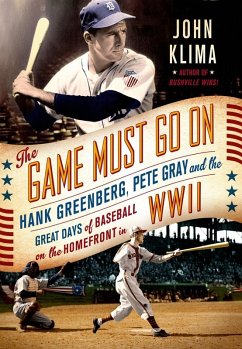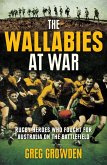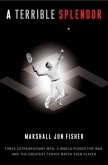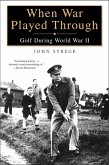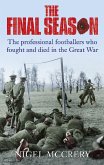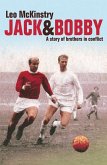The Game Must Go On offers a compelling and action packed story on how WWII changed American baseball, and how baseball helped to win the war.
On December 7, 1941, as the battleships of Pearl Harbor smoldered, one of the most powerful athletes in America, Detroit Tigers MVP Hank Greenberg, made a tumultuous decision-to leave the baseball field for the field of war.
His decision left baseball's place during the war uncertain as more and more ballplayers, famous and unknown alike, put off their careers to go into the fight. President Roosevelt was faced with a difficult decision: stop all of professional baseball for the good of the victory, but, in doing so, risk losing a vital part of morale. He decided that, whatever it took, THE GAME MUST GO ON.
This is the story of American baseball history during World War II-of both the players who left to join the war and of the ones who struggled to keep the game alive on the home front. Taking the place of the big shots turned soldiers, sailors, and combat pilots were misfit replacement players. While Greenberg represented the player who served, Pete Gray symbolized the player who stayed. He was a one-armed outfielder who overcame insurmountable odds to become a professional athlete.
John Klima drops us straight into 1941-1945. Culminating in the 1945 pennant race where Greenberg and Gray's paths memorably crossed, Klima shows us how World War II made the country come of age and took baseball with it. This is the story of how the games we play changed because of the battles we fought.
On December 7, 1941, as the battleships of Pearl Harbor smoldered, one of the most powerful athletes in America, Detroit Tigers MVP Hank Greenberg, made a tumultuous decision-to leave the baseball field for the field of war.
His decision left baseball's place during the war uncertain as more and more ballplayers, famous and unknown alike, put off their careers to go into the fight. President Roosevelt was faced with a difficult decision: stop all of professional baseball for the good of the victory, but, in doing so, risk losing a vital part of morale. He decided that, whatever it took, THE GAME MUST GO ON.
This is the story of American baseball history during World War II-of both the players who left to join the war and of the ones who struggled to keep the game alive on the home front. Taking the place of the big shots turned soldiers, sailors, and combat pilots were misfit replacement players. While Greenberg represented the player who served, Pete Gray symbolized the player who stayed. He was a one-armed outfielder who overcame insurmountable odds to become a professional athlete.
John Klima drops us straight into 1941-1945. Culminating in the 1945 pennant race where Greenberg and Gray's paths memorably crossed, Klima shows us how World War II made the country come of age and took baseball with it. This is the story of how the games we play changed because of the battles we fought.
Dieser Download kann aus rechtlichen Gründen nur mit Rechnungsadresse in D ausgeliefert werden.

